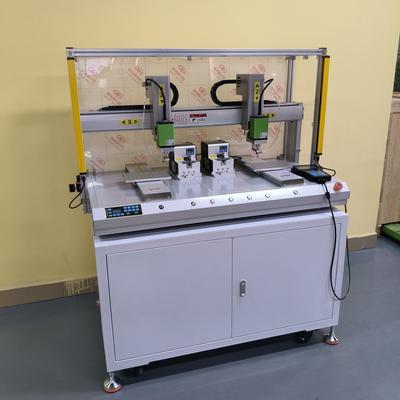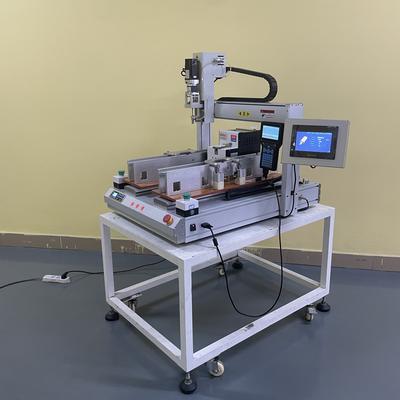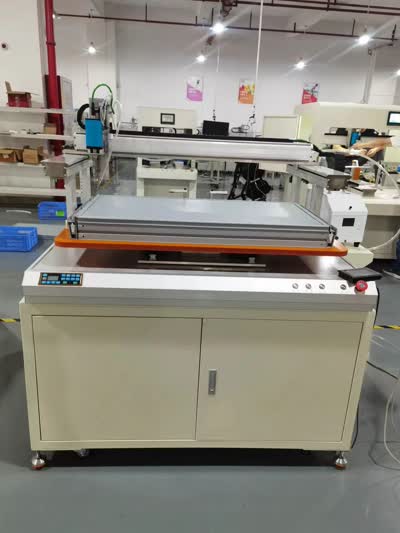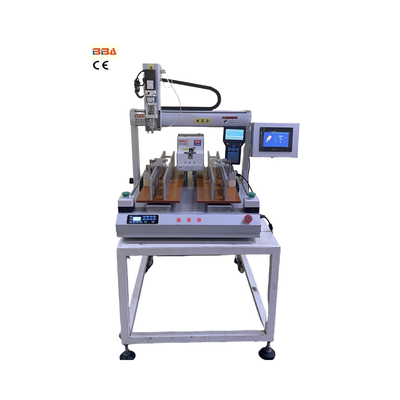Torque Accuracy in Multi-Axis Screw Fastening Machines | Industrial Automation
Torque Accuracy in Multi-Axis Screw Fastening Machines
In the world of modern manufacturing, precision is not just a goal; it is an absolute necessity. For industries ranging from automotive and aerospace to electronics and medical devices, the integrity of every assembled product hinges on the reliability of its smallest components. At the heart of this reliability lies a critical process: screw fastening. The accuracy of torque application in multi-axis screw fastening machines is paramount, directly influencing product quality, safety, and performance.
The Critical Role of Torque Accuracy
Torque, the rotational force applied to a fastener, must be precisely controlled to achieve the correct clamp load within a joint. An under-torqued screw can result in a loose connection, leading to product failure, vibration-induced damage, or potential safety hazards. Conversely, an over-torqued screw can strip threads, damage components, or induce stress fractures that may cause catastrophic failures later in the product's lifecycle. In multi-axis systems, where numerous fasteners are driven simultaneously or in rapid sequence, maintaining consistent torque accuracy across all spindles is a complex but essential challenge.
Challenges in Multi-Axis Systems
Multi-axis screw fastening machines dramatically increase assembly speed and throughput. However, this complexity introduces several factors that can compromise torque accuracy if not meticulously managed. One primary challenge is mechanical synchronization. Each spindle must operate independently yet deliver identical performance, requiring individual calibration and real-time monitoring. Variations in friction, due to factors like thread condition, material hardness, or lubrication, can differ from one fastener to the next, even within the same product. Without sophisticated control systems, these variations lead to inconsistent clamp loads.
Another significant factor is reaction forces. In a multi-head machine, the torque reaction from one spindle being driven can affect the alignment and pressure applied by adjacent spindles. This mechanical interplay can subtly alter the angle of approach or the downward force (z-axis pressure) on a fastener, impacting the final torque value. Advanced machines are designed with rigid structures and independent floating heads to isolate each spindle from these reactive forces.
Technologies Ensuring Precision
To overcome these challenges, leading multi-axis fastening systems integrate a suite of advanced technologies. Closed-loop torque control is fundamental. Each spindle is equipped with a high-resolution torque sensor that provides real-time feedback to a central controller. If the actual torque deviates from the preset value, the system can instantly compensate by adjusting the motor's output, ensuring every fastener meets the exact specification.
Furthermore, angle monitoring adds another layer of quality control. By measuring the rotation angle after a certain torque threshold is reached, the system can detect cross-threaded screws or holes that are out of tolerance—defects that torque measurement alone might miss. For the highest assurance, many systems perform a final torque verification check on each fastened screw, logging the data for full traceability and quality records.
The software behind these machines is equally important. Intelligent controllers can store thousands of tightening programs, manage different recipes for various products, and provide detailed statistical process control (SPC) data. This data allows manufacturers to analyze trends, predict maintenance needs, and continuously improve their assembly processes.
The Impact on Manufacturing Excellence
Investing in a multi-axis fastening system with superior torque accuracy is an investment in product quality and operational efficiency. It drastically reduces the rate of defective assemblies, minimizing costly rework and warranty claims. It enhances production line speed without sacrificing precision, delivering a rapid return on investment. Most importantly, it builds a foundation of reliability and trust in the manufactured product, which is the ultimate hallmark of a world-class industrial brand.
As assemblies become more complex and quality standards more stringent, the pursuit of perfect torque accuracy will continue to drive innovation in industrial automation. The multi-axis fastening machine, therefore, is not merely a tool for assembly but a sophisticated precision instrument that is critical to manufacturing success.
| Product Name | Applicable industries |
| Servo Screwdriver Robot | PCB and Circuit Board Assembly |



